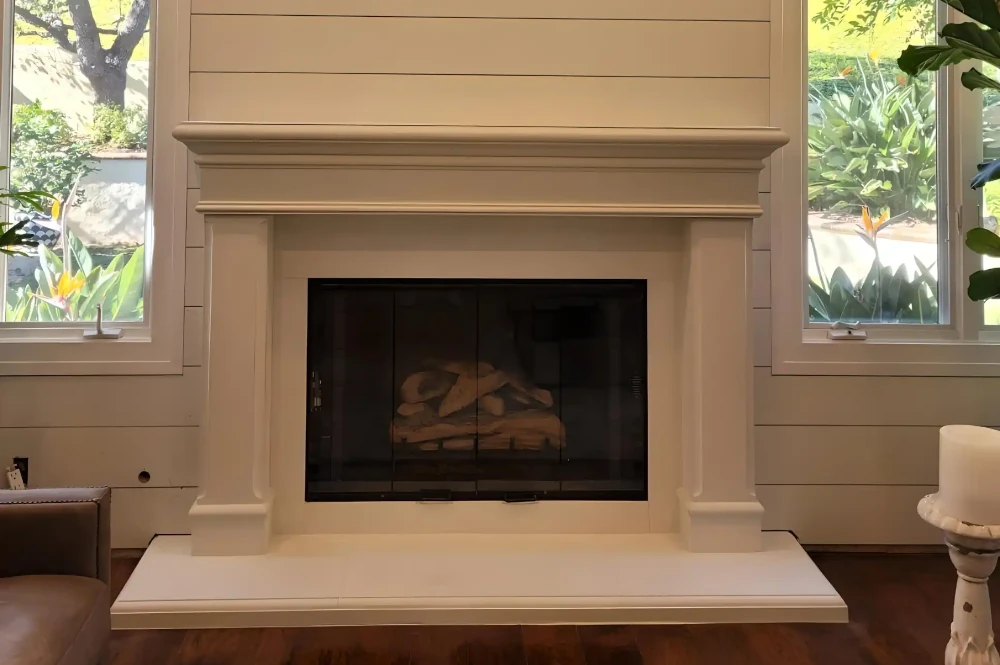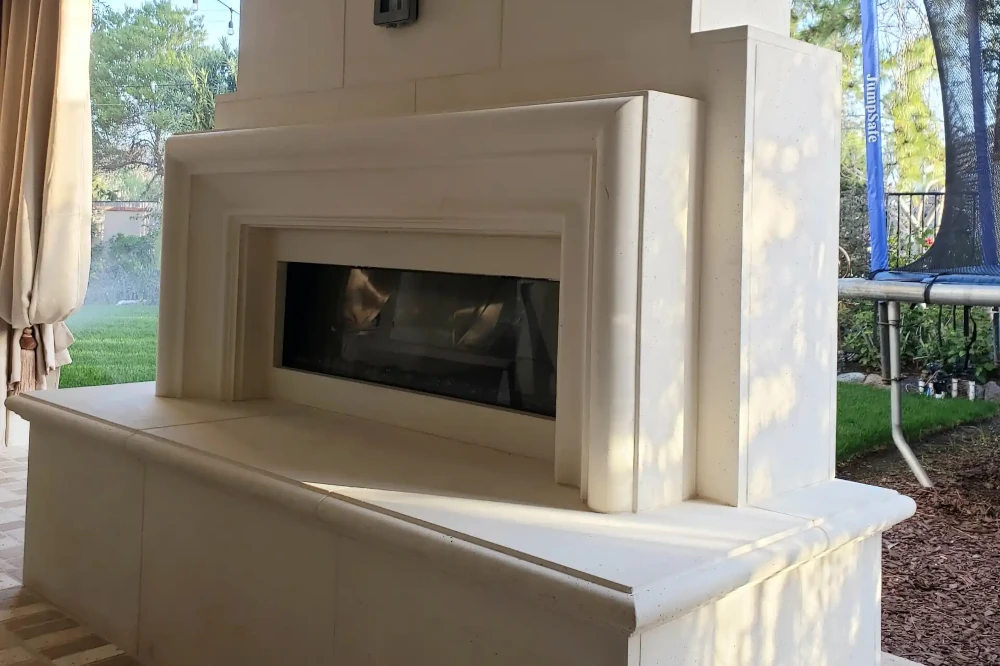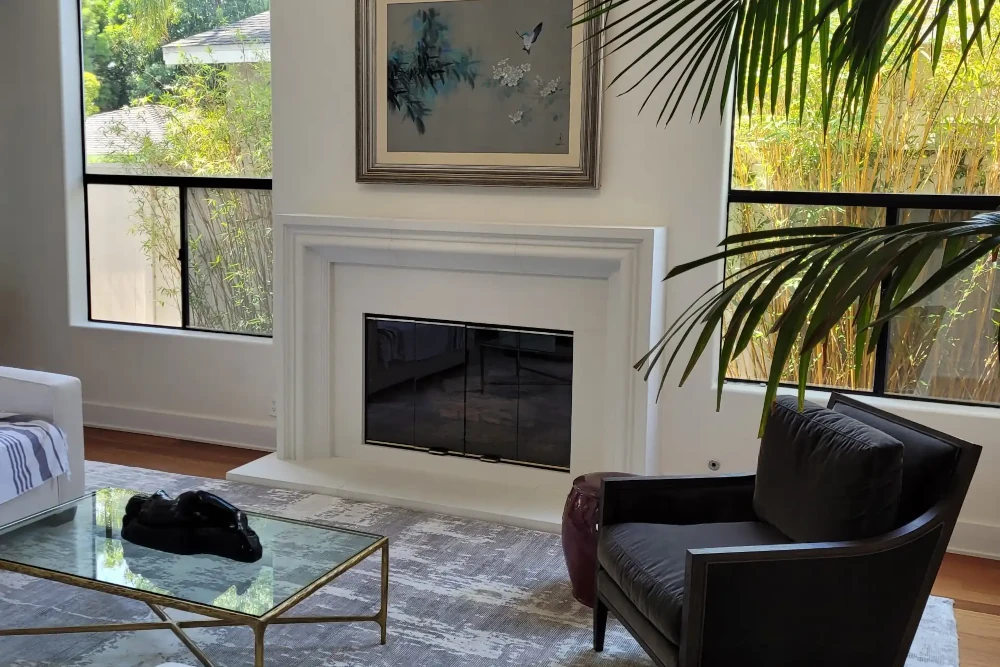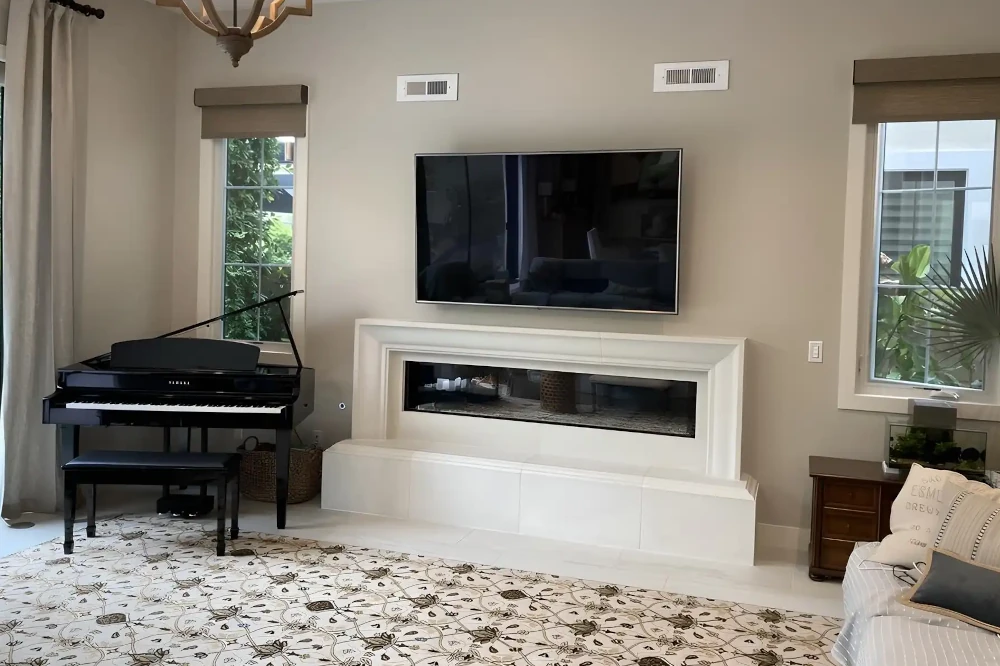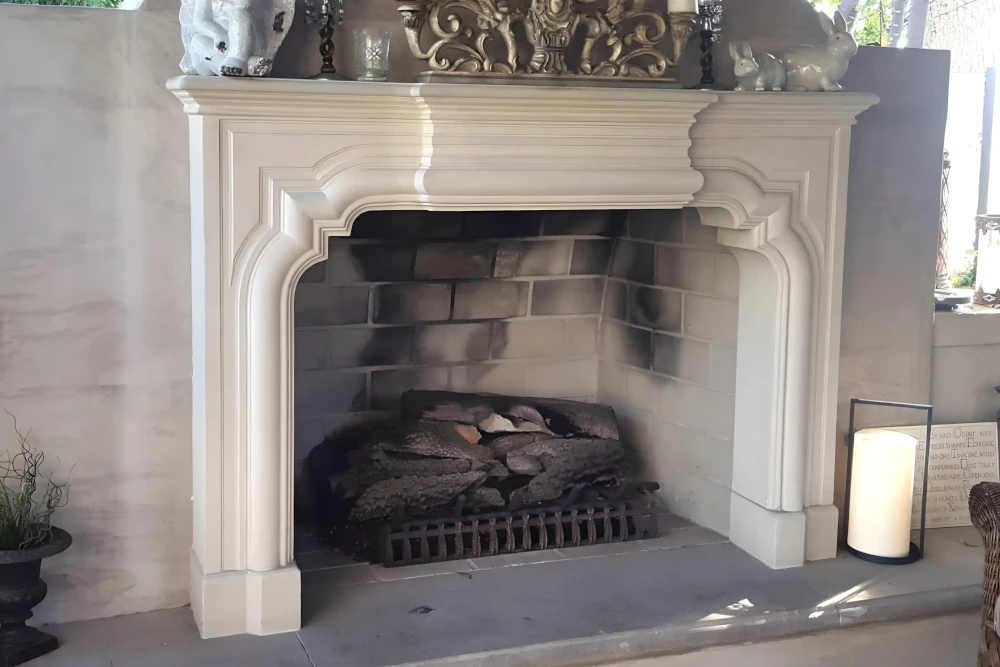When it comes to home construction and interior design, choosing the right materials can make a significant difference in the overall aesthetic, durability, and cost of a project. Stone has long been a favored material for its timeless beauty and strength. However, with advancements in manufacturing techniques, cast stone has emerged as a popular alternative to natural stone. In this article, we will explore the numerous benefits of cast stone over natural stone, highlighting why it has become a preferred choice for many architects, builders, and homeowners.
1. Cost-Effectiveness
One of the most significant advantages of cast stone over natural stone is its cost-effectiveness. Natural stone, particularly high-end varieties like marble, granite, or limestone, can be expensive to quarry, transport, and install. The cost of natural stone increases when considering the need for precise cutting and finishing, which requires skilled labor.
In contrast, cast stone is a more affordable option. It is made from a mixture of cement, aggregates, and pigments, which are readily available and less costly than natural stone. The production process allows for efficient manufacturing in controlled environments, reducing labor costs. Additionally, because cast stone can be molded into virtually any shape or size, it eliminates the need for extensive cutting and finishing, further driving down costs.
2. Versatility in Design
Cast stone offers unparalleled versatility in design, which is one of its most appealing benefits. Unlike natural stone, which is limited by its natural formations and the types of stone available in a given region, cast stone can be custom-made to meet specific design requirements. This flexibility allows architects and designers to create intricate and unique architectural elements that would be difficult, if not impossible, to achieve with natural stone.
With cast stone, homeowners can choose from a wide range of styles, textures, and finishes. Whether aiming for a smooth, polished surface or a rough, rustic appearance, cast stone can be tailored to match the desired aesthetic. Additionally, cast stone can be manufactured in various colors, allowing for perfect color matching with other materials in the project, something that is often challenging with natural stone.
3. Consistency in Appearance
One of the challenges with natural stone is the inherent variability in color, texture, and veining. While this variability can be appealing for some applications, it can also lead to inconsistencies that may not align with a designer’s vision. For example, when trying to achieve a uniform look across multiple elements, such as fireplace mantels, columns, or wall cladding, the natural variations in stone can result in a mismatched appearance.
Cast stone, on the other hand, offers consistency in appearance. Because it is manufactured using controlled processes, each piece of cast stone can be made to have a uniform color, texture, and finish. This consistency is particularly beneficial for large-scale projects where uniformity is essential to achieving a cohesive design.
4. Ease of Installation
Installing natural stone can be a labor-intensive and time-consuming process. Natural stone is heavy and often requires specialized equipment and skilled labor to handle and install. The irregular shapes and sizes of natural stone also mean that each piece needs to be carefully fitted, which can add to the installation time and cost.
Cast stone is typically lighter than natural stone, making it easier to handle and install. Its uniform shape and size mean that it can be installed more quickly and with less waste. Additionally, cast stone is often designed with built-in features such as interlocking joints or pre-drilled holes, further simplifying the installation process. This ease of installation not only reduces labor costs but also shortens the construction timeline.
5. Durability and Longevity
Durability is a critical factor when choosing materials for construction, and both natural stone and cast stone are known for their strength. However, cast stone has certain advantages that can enhance its longevity in various applications.
Cast stone is highly resistant to weathering, making it an excellent choice for exterior applications. It can withstand freeze-thaw cycles, which can cause natural stone to crack or spall over time. Additionally, cast stone is less porous than many natural stones, meaning it is less likely to absorb water and suffer from issues like staining or efflorescence. This resistance to moisture and environmental conditions contributes to the long-lasting appearance and structural integrity of cast stone.
Another aspect of durability is the ability to withstand impact and wear. While natural stone can be prone to chipping or cracking under heavy use, cast stone is engineered to be more resilient. This makes it an ideal material for areas that experience high traffic or where the stone is likely to be exposed to physical stress.
6. Environmental Benefits
In today’s environmentally conscious world, sustainability is an important consideration in construction and design. Cast stone offers several environmental benefits over natural stone.
First, the production of cast stone can be more sustainable than quarrying natural stone. Quarrying involves the extraction of large amounts of material from the earth, which can result in significant environmental disruption, including habitat destruction, landscape alteration, and the generation of waste. In contrast, cast stone is made from a mixture of locally sourced materials, and its production can be carried out in a way that minimizes waste and energy consumption.
Second, cast stone’s durability and low maintenance requirements contribute to its sustainability. Because it is less prone to weathering and damage, cast stone structures typically require fewer repairs and replacements over time. This reduces the demand for new materials and the environmental impact associated with ongoing maintenance.
Finally, some manufacturers of cast stone are incorporating recycled materials into their products, further enhancing their environmental credentials. By using recycled aggregates or other waste materials, these manufacturers are reducing the need for virgin resources and diverting waste from landfills.
7. Customization and Reproducibility
Another significant advantage of cast stone is its ability to be precisely reproduced, which is particularly valuable for restoration projects or when creating architectural elements that need to match existing structures.
For historic restoration projects, where original stone elements may have been damaged or eroded over time, cast stone can be used to replicate the original details with a high degree of accuracy. This ensures that the restored structure maintains its historical integrity while benefiting from the durability and consistency of modern materials.
In new construction, cast stone allows for the creation of custom architectural elements that can be reproduced multiple times with exact precision. This is ideal for large projects where uniformity is key, such as in commercial buildings, apartment complexes, or public spaces.
8. Maintenance and Care
Maintenance is a critical consideration when choosing building materials, particularly for exterior applications exposed to the elements. Natural stone, while durable, often requires regular maintenance to preserve its appearance and structural integrity. This can include sealing to protect against moisture, cleaning to remove stains or biological growth, and occasional repairs to address chipping or cracking.
Cast stone, by contrast, is designed to be low maintenance. Its non-porous surface makes it resistant to staining and biological growth, reducing the need for frequent cleaning. Cast stone typically requires less sealing than natural stone, and when sealing is necessary, it is usually a straightforward process. The material’s durability also means that repairs are less likely to be needed, and when they are, they are often easier to carry out.
9. Weather Resistance
Cast stone’s weather resistance is another significant advantage over natural stone, particularly in regions with harsh climates. Natural stone can be susceptible to weathering due to exposure to moisture, temperature fluctuations, and freeze-thaw cycles, which can lead to cracking, spalling, and other forms of degradation.
Cast stone is engineered to withstand these conditions better than many natural stones. Its lower porosity reduces the risk of water infiltration, which is a common cause of freeze-thaw damage in natural stone. Additionally, cast stone can be formulated with additives that enhance its resistance to weathering, making it a more reliable choice for exterior applications in areas with extreme weather conditions.
10. Availability and Supply Chain
The availability of natural stone is often dependent on geographic location, and certain types of stone may be difficult or costly to obtain in some regions. This can lead to delays in construction or the need to compromise on material choices.
Cast stone, on the other hand, is not limited by the location of natural quarries. It can be produced locally, ensuring a consistent supply that is less affected by geographic or logistical constraints. This reliability in the supply chain makes cast stone a more accessible option for projects anywhere in the world.
Conclusion
Cast stone offers numerous benefits over natural stone, making it an increasingly popular choice in construction and design. Its cost-effectiveness, versatility, consistency, and ease of installation make it an attractive option for a wide range of applications. Additionally, its durability, environmental benefits, and low maintenance requirements further enhance its appeal. Whether for new construction, restoration, or custom architectural projects, cast stone provides a practical and aesthetically pleasing alternative to natural stone, combining the beauty of traditional materials with the advantages of modern manufacturing techniques. As the demand for sustainable and efficient building solutions continues to grow, cast stone is likely to remain a preferred material for architects, builders, and homeowners alike.
Cast stone products from Studio Design Works are among the best on the market. The manufacturer can be reached using this form or by phone at (949) 627-5926.
Fireplaces have long been the heart of the home, providing warmth and a gathering place for families and friends. Over the years, the design of fireplaces, particularly the mantels, has evolved significantly. Among the various […]
Modern cast stone fireplaces have become a popular choice for homeowners looking to add a touch of elegance, warmth, and architectural interest to their living spaces. Cast stone, a highly versatile material that mimics the […]
Modern cast stone has emerged as a popular choice in contemporary architecture and interior design, offering a blend of durability, versatility, and aesthetic appeal. Cast stone, a refined architectural concrete product, can mimic natural stone’s […]
A APrecast fireplace surrounds have become increasingly popular due to their versatility, durability, and aesthetic appeal. Homeowners often have questions about this option, especially when considering it for their home’s design or renovation. In this […]

